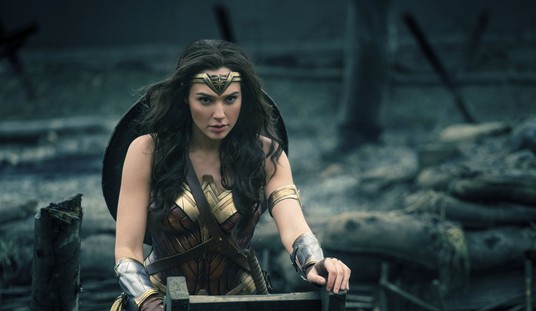Ask almost anybody to name the most important things in their life, and chances are family will make its way onto the list. Family — or at least the idea of it — lies at the core of most people’s existence. In the Judeo-Christian tradition, God designed the family to be the catalyst for spiritual, physical, and emotional growth. The biblical idea of family is built around mutual respect and well-defined roles. You can find plenty of advice in the Bible on how to live life within the family:
“Honor your father and your mother, as the LORD your God has commanded you, so that you may live long and that it may go well with you in the land the LORD your God is giving you.” Deuteronomy 5:16
“Listen, my son, to your father’s instruction and do not forsake your mother’s teaching.” Proverbs 1:8
“A wise son brings joy to his father, but a foolish man despises his mother.” Proverbs 15:20
“Children, obey your parents in everything, for this pleases the Lord.” Colossians 3:20
“Fathers,do not exasperate your children; instead, bring them up in the training and instruction of the Lord.” Ephesians 6:4
“Start children off on the way they should go, and even when they are old they will not turn from it.” Proverbs 22:6
Walt Disney lived these values too. He loved his daughters and grandchildren, and his ultimate goal was to provide quality entertainment for families. He designed his theme parks to be fun for parents as well as children, and his films and television series contained elements that the entire family could enjoy.
5. Reuniting The Family – The Parent Trap
Occasionally the most ridiculous of conceits make great films. Such is the case with The Parent Trap (1961). Fresh off Hayley Mills’s success in Pollyanna, Walt Disney eagerly rushed his new find into the dual role of twins Susan Evers and Sharon McKendrick, whose parents Mitch (Brian Keith) and Maggie (Maureen O’Hara) divorced when the girls were babies. Sharon lives with Mitch in California, while Maggie and Susan live in Boston.
Susan and Sharon meet each other for the first time at Camp Inch, a summer camp for girls. They begin an instant rivalry, playing pranks on each other and wreaking general havoc on the camp until a dance turns into a disaster. The camp’s director forces the girls to spend the rest of their time at camp in isolation, staying together in a separate cabin and eating meals at their own table. One day in the cabin, they discover in the course of conversation that they are twin sisters.
They hatch a plan to get their parents back together. They decide to switch places and use the switch to lure their parents back together. The plan starts to work when Susan (masquerading as Sharon) discovers that Mitch is engaged to a social-climbing younger woman named Vicki (Joanna Barnes) who is only after his money. Maggie flies to Mitch’s ranch in California to switch the twins back, and Susan and Sharon begin to work on breaking Mitch and Vicki up while trying to rekindle Mitch and Maggie’s love for each other. They attempt to recreate Mitch’s first date with Maggie, and they sabotage a camping trip with Mitch, the girls, and Vicki. When Vicki slaps one of the girls, Mitch is done with her. Eventually, Maggie and Mitch remarry.
Susan and Sharon’s efforts to reunite their parents display that universal desire for a happy family. Even though they have only known each other a matter of days, the girls quickly work to make reuniting their family a reality. The fact that the girls are able to rekindle their parents’ love for each other is powerful and poignant, however unrealistic.
4. Four-Legged Family Members – Old Yeller
We’ve all heard plenty of wistful stories about a boy and his dog — the most loyal of pets, the four-legged family member. One such story makes up the basis for one of Disney’s most loved films — 1957’s Old Yeller. Old Yeller has such a soft spot in moviegoers’ hearts that it boasts a perfect rating of 100 on Rotten Tomatoes! It’s a powerful story of a family trying to keep themselves afloat in rough times.
In Texas just after the Civil War, the Coates family struggles to eke out a living on their farm. Jim Coates (Fess Parker) leaves home to find work on a cattle drive and places his older son Travis (Tommy Kirk) in charge of the family. Travis takes his role as “man of the house” seriously and is annoyed when his brother Arliss (Kevin Corcoran) takes in a “purty yeller dog.” But the dog forms a bond with the boys and their mother (Dorothy McGuire), and he becomes the family pet. Old Yeller is rambunctious and mischevious, but he is also protective, saving Travis’ life when a boar tramples him.
The Coates family’s neighbor warns them of rabies in the area. Travis shoots one of the family cows dead when she comes down with the disease. That night, a rabid wolf attacks, and bites Old Yeller when the dog tries to protect the family. Old Yeller becomes infected, leading to one of the most heartrending scenes in movie history:
Old Yeller’s death resonates with generations of moviegoers because of the way pets become part of our family. We can also see it as part of Travis’ journey to adulthood. Watching Travis take charge of his family — something most 15 year olds today could never do — provides an added poignancy to the story of Old Yeller. I believe that the mix of sweet and bitter is what has made the film so special to so many of us.
3. A Mother’s Unconditional Love – Dumbo
Short of God’s own love for us, a mother’s love provides the best example we can find of unconditional love. We see that kind of love at the heart of one of Disney’s most poignant and beloved animated classics: 1941’s Dumbo. Disney made the film on the cheap as a way to recoup some of the profits the studio lost on Fantasia and Pinocchio, and the result is a film that is elegant in its simplicity and sweetness.
The stork delivers a baby to a circus elephant named Mrs. Jumbo, and she christens him Jumbo, Jr. There’s one thing different about Jumbo, Jr. — he has enormous ears. The other elephants shun him and derisively call him Dumbo. When the circus sets up in a town, a group of boys make fun of Dumbo and pick on him. Mrs. Jumbo does what all good mothers do and stands up for her baby. Her violent actions lead the circus workers to label her mad and lock her in a confinement trailer. With his mother behind bars, Dumbo realizes he is all alone, with the exception of his pal Timothy Q. Mouse.
When Dumbo finds himself at his loneliest, whom does he turn to? His mother, of course. Even in her cell, she comforts him as only a mom can. Witness this iconic moment, which features Betty Noyes’ lovely performance of the Oscar nominated song “Baby Mine.” I defy you to keep dry eyes.
Dumbo finds himself in humiliating stunt after humiliating stunt, until he and Timothy inadvertently drink too much champagne. After waking up in the top of a tree, Dumbo discovers his true talent — flying with those amazing ears. With his flying talent, he becomes the star of the big top. The director of the circus rewards Dumbo with a private car on the circus train. And who gets to ride with him? His mother, of course. It’s her own reward for her unconditional love.
2. ‘Til Death Do Us Part – Up
Nearly 45 years after Walt’s death, Disney and its Pixar arm managed to craft a tale of a long-lasting, happy marriage that feels like the exception to the rule in an era of disposable relationships. In Up balloon salesman Carl Fredricksen falls in love with zookeeper Ellie. The couple dreams of visiting far off places, including Paradise Falls, Venezuela. Carl and Ellie, unable to have children, save all their money for their dream holiday, only to find themselves using the money for more practical matters time and time again. When Ellie passes away, Carl mourns the love of his life.
The filmmakers encapsulated Carl and Ellie’s marriage into a four-minute sequence that is alternately heartwarming and heartbreaking. If you don’t at least have a lump in your throat after watching this clip, you may not have a soul.
Carl’s deep love for and memory of Ellie (along with his impending forced move to a retirement home) lead him to fulfill their longtime dream of visiting Paradise Falls. He inflates thousands of helium balloons and ties them to his house, ripping it from its foundation and sending it skyward. On the journey, he experiences unbelievable adventures, meets new friends, faces down his childhood hero (who is really a villain), and regains a love for life. Best of all, he tastes again the sense of excitement that he and Ellie had during their married years.
Director Pete Docter related the film’s main point in an interview with Christianity Today:
Basically, the message of the film is that the real adventure of life is the relationship we have with other people, and it’s so easy to lose sight of the things we have and the people that are around us until they are gone. More often than not, I don’t really realize how lucky I was to have known someone until they’re either moved or passed away. So, if you can kind of wake up a little bit and go, “Wow, I’ve got some really cool stuff around me every day”, then that’s what the movie’s about.
Up struck a chord with critics and the public. The film brought in over $731 million in box office receipts, and the Academy of Motion Picture Arts & Sciences nominated it for Best Picture, only the second animated film so honored. Michael Giacchino’s magnificent score took home an Oscar, and Up won the award for Best Animated Film.
1. The Hard-Working, (Mostly) United Family – Swiss Family Robinson
Imagine this for a minute: you suddenly find yourself with your family stranded on a deserted island – no reward or immunity challenges, no abandoned Dharma Initiative to provide food, no volleyball to befriend. Would you survive? Would you make the best of the situation? The 1960 live-action Disney classic Swiss Family Robinson, based on Johann Wyss’ novel, demonstrates a strong, loving family in action in a similar scenario. The Robinsons – Father (John Mills), Mother (Dorothy McGuire), Fritz (James MacDonald), Ernst (Tommy Kirk), and Francis (Kevin Corcoran), along with their dogs Turk and Duke – prove what a family working hard together can do to overcome the most extreme circumstances.
The ship carrying the Robinsons, on their way to the colony of New Guinea, wrecks, stranding the family on an uncharted island with pirates at their heels. They gather everything they can from the wreckage of the ship, and Father, Fritz, and Ernst work hard to set up a treehouse on the island. They could have put together a simple – and temporary – shelter, but the family chooses to take advantage of the ship’s comforts and construct the perfect home for a long stay on the island. The treehouse comes complete with running water, innovative security features, and a romantic bedroom for Father and Mother.
Later on, Fritz and Ernst decide to explore the island to map it out and look for rescue, saving one of the pirates’ hostages – a young woman named Roberta (Janet Munro), who is disguised as a cabin boy – and battling quicksand, hyenas, and snakes along the way. After Fritz and Ernst return to the treehouse, the Robinsons realize that they must build adequate protection against the pirates, and once again, everyone pitches in — including Francis — to develop clever defenses. Once they feel safe in their efforts, the Robinsons celebrate the first holiday in the history of the colony they have dubbed “New Switzerland” and successfully fend off the pirates once and for all.
The Robinsons aren’t the perfect family by any means. Fritz and Ernst fight. Mother cries and expresses her doubts about their survival. And Francis just annoys the hell out of everybody. But the Robinsons remain strong and make the most of their circumstance, and it pays off. The film inspired a beloved – if endangered – attraction at Walt Disney World: the Swiss Family Treehouse.
—
I could go on and on. My family eats, drinks, lives, and breathes Disney, so for all of us, Disney represents family. Any time I watch a Disney movie with one of my nieces, any time we take a multi-generational trip to Walt Disney World, and any time we relive any of our Disney memories, we take part in a long tradition of family entertainment that began with Walt Disney nine decades ago. I, for one, am grateful that he chose to value families from the beginning of his career.









Join the conversation as a VIP Member